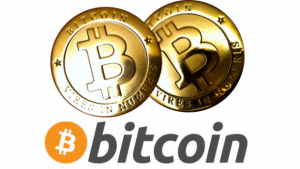Blockchain Governance Systems
 What is one thing that most proponents of decentralized Blockchain applications don’t like to think about? That one thing may involve all the ways that the Blockchain is very much like a government. Both require a general consensus that the entities involved are valid ones that can outperform competitors. Both can provide tools for transactions, dispute resolution and the creation of legal documents. In fact, many insiders are already working on the first versions of Blockchain applications that can replace the traditional functions of centralized governments if their use becomes widespread.
What is one thing that most proponents of decentralized Blockchain applications don’t like to think about? That one thing may involve all the ways that the Blockchain is very much like a government. Both require a general consensus that the entities involved are valid ones that can outperform competitors. Both can provide tools for transactions, dispute resolution and the creation of legal documents. In fact, many insiders are already working on the first versions of Blockchain applications that can replace the traditional functions of centralized governments if their use becomes widespread.
The Blockchain could do some things better than the typical government, especially in terms of record-keeping. The United States’ IRS claimed to have lost emails from the time period during which it was accused of unfairly singling out conservative nonprofit organizations for extra scrutiny and made its own Information Technology staff look bad in the process. How hard would it really be to back up the email servers at least once a week and store the backups at an off-site location? A Blockchain application for storing emails would have made them much more difficult to deliberately “lose,” simply because the data would still be somewhere on the network dedicated to maintaining that particular Blockchain.
The best thing about Blockchain-based governance applications is that participation would be entirely voluntary. If you ignore a lawsuit brought against you in a U.S. federal court, you are very likely to get a default ruling against you, as one family found out when somebody sued over a barking dog and received a default ruling worth $500,000 when they blew it off as a frivolous lawsuit. A $500,000 ruling over a barking dog was a bit ridiculous but the kind of thing that happens when you annoy a neighbor who isn’t afraid to exert his rights in a system where rulings are considered valid even when the parties involved never agreed to be bound by the decision. The best thing this family could have done is to train the dog to not become a nuisance to the neighbors before it reached this point. The second best thing they could have done is show up in court the instant they received notification that they were a defendant in a lawsuit. The U.S. court system is notoriously unforgiving of anyone who ignores its rulings, too, so the family is now facing the loss of their home over a nuisance dog.
With an entirely voluntary Blockchain-based judicial system, rulings would only be valid if all parties involved agree to be bound by the ruling. This could become a tangled mess if the aggrieved party must hop between a dozen court systems before it finds one that the defendant would recognize, but that could be solved by requiring that the plaintiff must acknowledge any previous cases filed against him/her and either file a defense or settle the matter before filing a lawsuit of his/her own. Essentially, the family with the nuisance dog could have ignored any lawsuit as long as they never used the same system to file a lawsuit of their own.
And how would one protect the rights of people who have been harmed through no fault of their own because somebody else did something colossally stupid? Besides the fact that everybody should have the same access to legal systems, Blockchain-based judicial systems could work in tandem with other applications through the use of chains that can send information to other chains through the use of one-way or two-way pegs. A “smart” contract system could be set to check with a judicial sidechain that could send information on current or past cases against a party wishing to create a new contract, for instance. This need not even be a matter of bloating a Blockchain when you consider that each chain involved could pretty much ignore one another and run on completely different systems except when they must exchange information. Even then, it only needs to be a matter of sending the digital version of “yes” or “no”. The contract chain could reject the attempt to create a new contract if it receives a “yes” to the query of, “Is this party a defendant in any outstanding lawsuits or has a case in which he was a defendant ever been decided against him?” Anyone who is rejected by the smart contract system for this reason can then investigate the matter and resolve the matter before continuing.
This may cause a considerable amount of consternation among certain industries, like established insurance corporations that suddenly have to compete with companies that make use of a Blockchain-based application that put the rights of consumers on an equal footing with the companies’ profits and could lose the right to record new or renewed policies on the chain if they don’t keep up their end of the contract, and private citizens like the owners of that nuisance dog who suddenly find it very difficult to buy a home in respectable neighborhoods run by homeowners’ associations that could reject buyers that have had a ruling made against them for having a nuisance animal. This would provide incentives to settle disputes before they get as far as a decision being stored on the Blockchain.
If a system is designed to handle contracts so well, it should be able to handle other legal documents in a way that take disputes about what was actually recorded in the documents involved out of the equation, right? Believe it or not, the Blockchain can even handle marriage “licenses”! Bitnation brags about being the entity that made the first recording of a wedding on the Blockchain. Attendees could scan a QR code that contained information about the new marriage. Some proponents of such an application say that a marriage agreement, like any contract, could be set to last 5, 10, 15 or more years and be renewed if both parties agree to it. The marriage contract could also include “pre-nup” clauses that protect the financial rights of both parties if things don’t go as planned. This would help cut down on messy and expensive divorces if the relationship goes south because the marriage was never registered with a centralized government agency anyway. The dissenting partner simply walks away when the contract expires. Otherwise, both partners can choose to renew the contract or negotiate new terms on the understanding that the priorities and goals of each individual can change over time.
Gee, I sure know how to take the romance out of things don’t I? However, the Blockchain can handle those important transactions like a marriage agreement, wills, deeds, notarized documents and shareholder agreements – all things that you might reasonably expect to involve a county clerk, legal department and/or your local courthouse at some point. Each transaction would be recorded using methods that require consensus from the entire Blockchain network to add or change records. Centralized government structures probably won’t be going anywhere anytime soon. However, this is the kind of application that can gain momentum over time until Blockchain governance systems establish consensus over the centralized government model.
[simple-rss feed=”http://rest.ebay.com/epn/v1/find/item.rss?keyword=%28blockchain%2Cbitcoin+blockchain%2Cbitcoin+technology%29&sortOrder=BestMatch&programid=1&campaignid=5337337555&toolid=10039&listingType1=All&lgeo=1&feedType=rss” limit=10]







